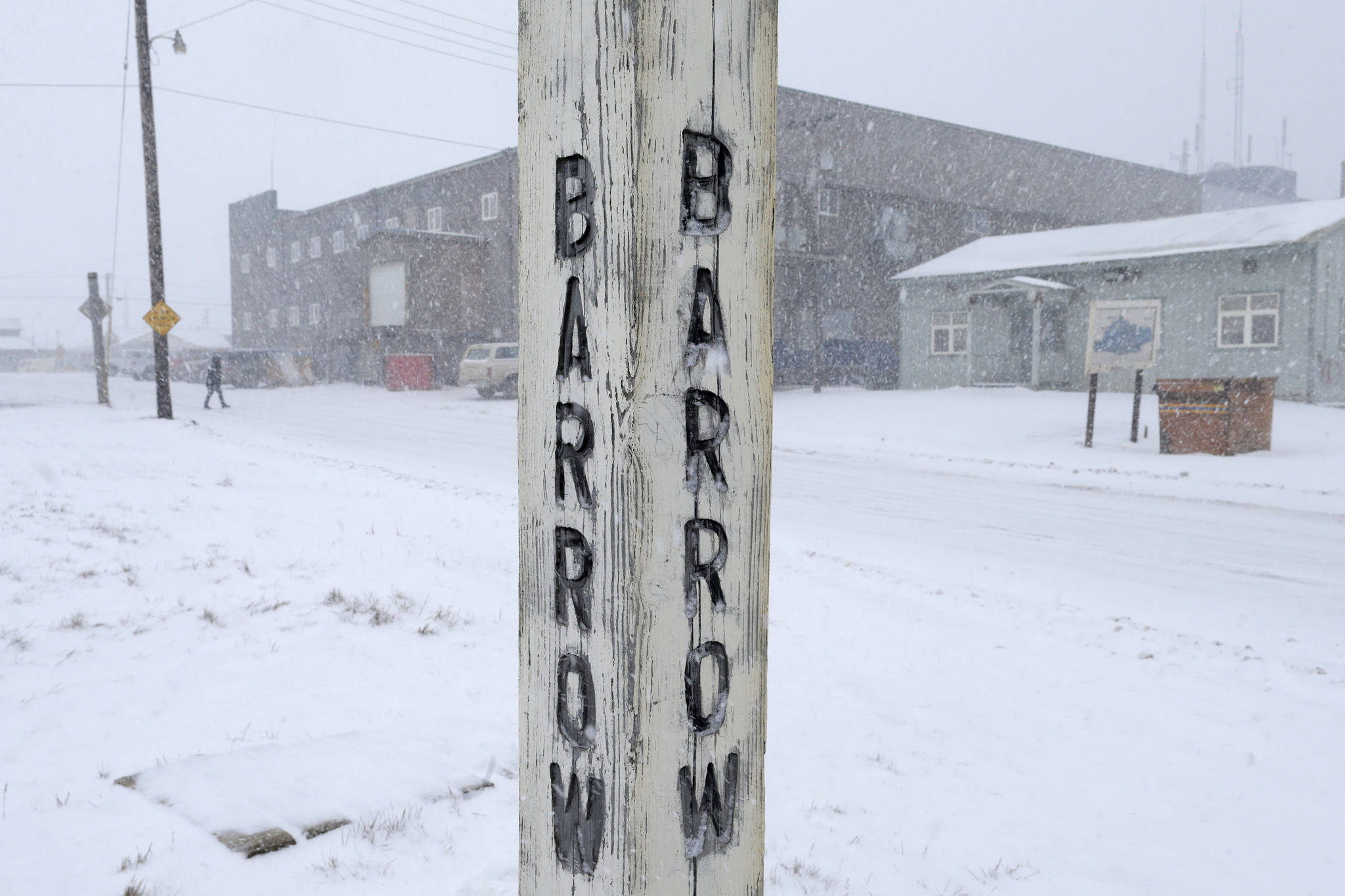ANCHORAGE — A judge in Alaska dealt a legal blow Friday to opponents of the new Inupiat Eskimo name approved by voters for the northernmost town in the U.S.
Superior Court Judge Paul Roetman denied a request to halt implementation of the transition from the old name of Barrow to Utqiagvik until a lawsuit filed by a local Alaska Native corporation is resolved.
Name change opponents argued the city broke its own laws by failing to publish a public notice before the renaming question was put on the local ballot in October. The measure won by a six votes.
Roetman said the opponents failed to show that continuing the transition process would harm them or that they would probably succeed in making their case.
He also agreed with the city’s stance that publishing notices for elections is optional, but not mandatory for anything except tax-related ordinances, and noted its long history of posting notices at seven known places around town.
“This achieves the purpose of a publication requirement to advise those interested that the matter is up for consideration, avoid hasty or ill-considered actions and to provide a reflective process giving citizens an opportunity for expression of their opinions,” the judge said at the court hearing held in the town of more than 5,000.
He noted that both supporters and critics testified at the City Council meeting where the name-change ordinance was adopted.
Roetman set a hearing for March 22 on the civil lawsuit filed by Ukpeagvik Inupiat Corp., among scores of village and regional corporations that were created by a 1971 federal law on behalf of Alaska Natives to compensate them for the loss of their lands. The compensation for all corporations included nearly 44 million acres of land and $962 million.
Matt Singer, an attorney for the village corporation, said afterward that it was too soon to say what’s next for his client, which filed the lawsuit just before the name change became effective in December.
“UIC’s disappointed in the results today and will evaluate its options and then move forward,” Singer said.
Attorney Louann Cutler, who is representing the city, said her client was pleased with the ruling even though it did not resolve the lawsuit.
“This wasn’t a question of the City Council moving off into the dark of night,” she said. “This was something subjected to quite a bit of public discussion. Even if the public is divided, there was a vote. So I was pleased the judge recognized that in his ruling.”
The corporation has argued that a lack of input from the public led to a flawed law being passed, one that didn’t even use the correct traditional name for the city. Plaintiffs say the correct word is Ukpeagvik, which means “the place where we hunt snowy owls.”
Mayor Fannie Suvlu, who was voted into office in the same October election, had proposed an ordinance to consider asking voters if the new name should be repealed. The City Council turned down the proposal in January.
Suvlu has said the council rejected her proposal after local residents had several opportunities to address the issue.
City Council member Qaiyaan Harcharek, who attended Friday’s proceeding, introduced the ordinance in August that began the process ultimately ratified by voters. Harcharek, who is Inupiat on his mother’s side, has said the new town name essentially means a place for gathering potatoes.
“Woo hoo is my reaction,” to the judge’s ruling, he said.
But as long as the lawsuit is in place, there are still holdups in the transition, he said. For example, the state has put a hold on changing driver’s licenses to reflect the new name, which Harcharek said has been a source of frustration for locals.
He believes the judge’s decision signals the plaintiffs don’t have much of a case if they proceed.
“The judge by his ruling kind of said they won’t have a chance,” he said. “Whether UIC wants to keep spending money and fighting the fight when they got denied this will be interesting.”

